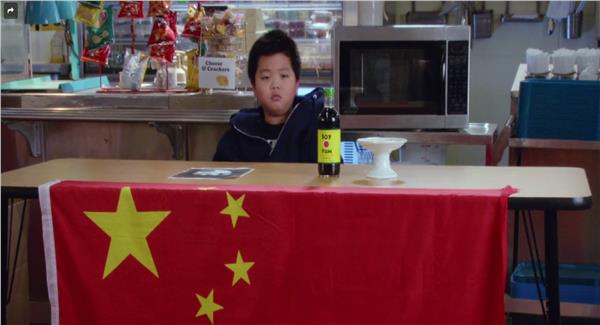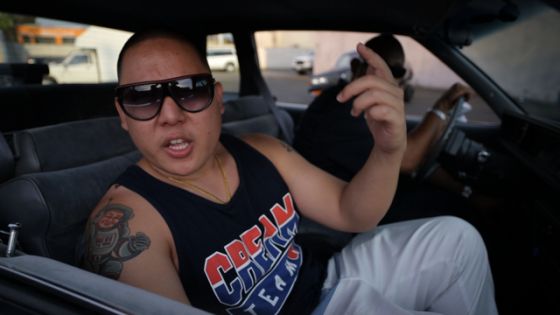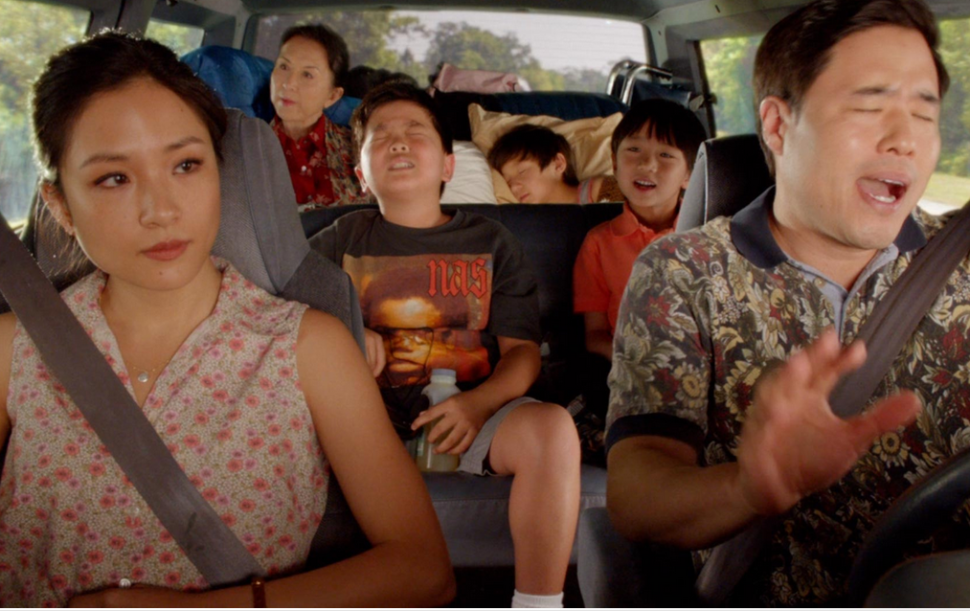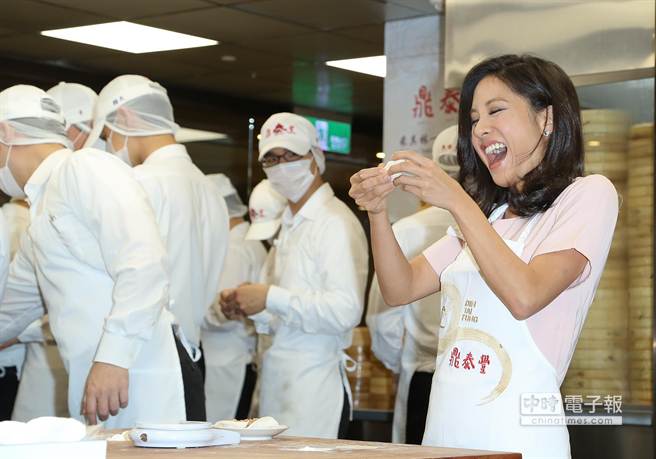by Brian Hioe
語言:
English
Photo Credit: Fresh Off The Boat
Shifting Evaluations
DESPITE HAVING finished its first season’s run and having been renewed for a second season, the future of Fresh Off The Boat would seem to be up in the air. Though receiving no small amount of praise early on in its run as a show depicting the Asian-American experience through its portrayal of food personality Eddie Huang’s experiences as an Asian-American, critical consensus is now divided. Eddie Huang’s antics recently hit a nerve concerning his misogynistic tendencies, having overstepped his bounds after a tiff on social media with blogger Black Girl Dangerous, in which Huang remarked upon the emasculation of Asian males by claiming that Asian males were “treated like black women” and calling feminists “bums.” Huang’s history of casual misogyny would seem to be longstanding, but until the incident with Black Girl Dangerous, this aspect of Huang was largely disregarded by Asian-Americans in their adulation of Fresh Off The Boat.
But this turnabout in the evaluation of Fresh Off The Boat may, in fact, be paradoxical where Huang himself has disavowed his own television sitcom, claiming to no longer watch the show because of its having been taken too far from his experiences in its liberal adaptation of his memoirs. Huang’s disavowal of his show came before his Twitter argument with Black Girl Dangerous, Huang claiming that the show had betrayed the darker elements of his childhood experience, for example, in regards to his father’s violent tendencies and the childhood beatings Huang experienced as a result.
 The scene in the season finale of Fresh Off The Boat in which depicted Huang’s character with the PRC flag. Photo credit: Fresh Off The Boat
The scene in the season finale of Fresh Off The Boat in which depicted Huang’s character with the PRC flag. Photo credit: Fresh Off The Boat
Overseas, Huang was previously held up as a hero in Taiwan for representing Taiwanese abroad in the American public eye. After the show began to be broadcast in Taiwan, Huang is now lambasted after an incident where the show represented Huang as mainland Chinese, rather than Taiwanese through the depiction of his character representing himself under a PRC flag at a school fair. We should note the show largely did not make any distinctions between Taiwanese and Chinese through its run, using the terms “Taiwanese” and “Chinese” rather loosely even as it is also true that some mainlander Taiwanese families in the United States as Huang’s do tend to use “Taiwanese” and “Chinese” rather interchangeably.
No doubt, the media phenomenon of Fresh Off The Boat has some momentum yet, where the show had popular appeal among a mainstream American audience and continues to have its defenders against critics. But looking back, can we look back on the way in which the reception of Fresh Off The Boat was, in some sense, socially overdetermined? Namely, where we can perhaps point fingers at Huang, or the producers of Fresh Off The Boat for taking the show in the direction of commodifying Asian-American experience, perhaps we might instead point towards the way that viewers of the show, Asian-American or Taiwanese, who were too ready to accept anything as representative of their experience and thus turned a blind eye to where the show demonstrated flaws from an early point. In this way, the show’s success was, as we might phrase it, socially overdetermined.
Looking Back on Critical Reception of Fresh Off The Boat
EARLY ON in Fresh Off The Boat’s run, I wrote the article “Fresh Off The Boat and the Limits of Cultural Representation”, which took a sympathetic, though more critical stance towards Huang. What I sought to accomplish in that article was to point out to the Asian-American and Taiwanese audiences of Fresh Off The Boat the limitations of Eddie Huang’s vision of identity as represented in Fresh Off The Boat.
Largely, what I concerned myself with was two issues. First was that of Huang’s misogyny, where Huang’s response to a sense of Asian male emasculation was to adopt an oversexed, casually sexist persona modeled after black hip hop culture. After all, where cultural stereotype of the weak and feminine Asian male proliferate in American culture, whether through the discourse of the model minority, locker room banter about small Asian penis sizes, or otherwise, sometimes the reaction is to adopt a oversexed masculine personality to make up for this sense of lack. Huang’s reaction seemed to be particularly symptomatic to me where Huang’s attempt to make up for his sense of emasculation was to adopt a black hip hop influenced personality, drawing upon a problematic discourse of the hypersexed black male, not to mention that for all the noise Huang made about cultural appropriation, he seemed to feel quite entitled to appropriating black hip hop culture.
 Eddie Huang. Photo credit: Vice Media
Eddie Huang. Photo credit: Vice Media
Second, where I saw nobody else discussing Huang’s claim to represent Taiwan when I did not think it was valid for him to represent Taiwanese as though he were one of them when he was Taiwanese-American and not Taiwanese, pertaining to such issues as Taiwan’s history of Martial Law and Taiwan’s de facto independence and largely separate cultural identity from China—Huang’s family being of the “mainlander Taiwanese” minority that fled to Taiwan after the Chinese Civil War, which constituted an economic and political elite, that is, a ruling class over native Taiwanese during the period of Chiang Kai-Shek’s military dictatorship. Moreover, as a product of that, Huang was a descendent of high-ranking KMT officials and a mixed sense of identification which seemed to me to be at least partially a product of his upbringing in American society in which distinctions between “Taiwanese-American” and “Chinese-American” can be largely negligible, Huang was prone to a vague sense of identification with China which I thought would be misleading for those less knowledgeable about Taiwan. I thought this would be damaging to how Americans understood Taiwan’s continued attempts to preserve its de facto independence from China in the present over China’s continued territorial claims over Taiwan.
Where, if I might claim a certain amount of credit for myself, I was one of the earlier critics who took on Fresh Off The Boat in the sea of positive Asian-American appraisals of the show, several months later, I think myself rather vindicated where evaluations of Huang and of Fresh Off The Boat now swing towards being more critical in nature. And perhaps, at the very least, Fresh Off The Boat succeeded in raising certain significant questions—even if this was through its problematic nature.
For the most part, my article did seem quite well-received at the time, largely through the fact that I adopted a sympathetic tone towards Huang, rather than one which sought to Huang down a peg. After all, part of the reason why I felt a need to venture a critique was a sense that few others would offer the criticisms that I would, particularly regarding the fact that I thought more critical Asian-Americans might eventually call him out on his misogyny, but few would also take into account Huang’s problematic representation of Taiwan and how Taiwanese viewed Huang—I have been acting as a writer on Taiwanese politics since I was caught up as a participant observer last year in the Sunflower Movement, Taiwan’s largest social movement since the end of the post-authoritarian movement concerning its continued issues regarding internal problems of democracy and China’s territorial encroachment upon Taiwanese sovereignty.
Indeed, there are still fewer individuals with as similar backgrounds to Huang as myself—although I am half-Taiwanese to begin, I myself am from a mixed mainlander Taiwanese and native Taiwanese family of descent which sometimes drifts quite strongly towards identification with China, my maternal grandfather having been, like Huang, a high-ranking KMT official—though unlike Huang, I have altogether little pride in this fact. More to the point, where I write on Taiwanese politics on a regular basis I thought it would be even less likely that there would be anyone such as myself to write such a critical article from a standpoint as mine. And if I had been vaguely sympathetic to Huang in my criticisms of him, it was because I could see too much of myself in him to approach him only from the position of sheer animosity. But, again, if my article was well-received for the most part, I think it was because of my attempt to be balanced and fair in my criticism.
Where I did see myself largely proved right, it was in the show’s later run. Indeed, I do actually take seriously Huang’s disavowal of the show as more than just antics aimed at getting attention. It is easy to see why he would feel betrayed by the show. No more is the commodification of Asian-American experience of Fresh Off The Boat clearer in the whitewashed depiction of Huang’s genuine pathos from the violence he suffered through beating at the hands of his father, which is played off for laughs in the television show through an episode involving a visit by Child Protective Services. In the television show, this is all part of the humorous situational comedy setup where the young Huang in the television show tells tall tales about facing beatings, but was never actually beaten—never mind, of course, the concrete reality of the beatings Huang suffered as a childhood, here even demeaned as tall tales or vaguely fictional.
 Still from Fresh Off the Boat. Photo credit: Fresh Off the Boat
Still from Fresh Off the Boat. Photo credit: Fresh Off the Boat
And the true colors of Fresh Off The Boat show themselves in the final episode. Apart from the aforementioned flag incident, the episode largely concerns itself with the Huang family being concerned with that they are losing their culture to assimilation. But in the end, it is of course that the Huang family decides that the preservation of tradition lay in the adaptation to American culture—not as a choice they are forced to make painfully, but the realization that the adaptation to American culture does not need to not involve giving up tradition, that the adaptation to American culture can in fact allow for the preservation of the essential kernel of tradition. All hail the great American melting pot!
Were Taiwanese-Americans and Asian-Americans Too Uncritical in Embracing Fresh Off The Boat?
YET IT WAS ironic, too, in terms of some of the responses I received about my article which were not so positive. At least several Asian-Americans thought I was too uncharitable towards Huang where Fresh Off The Boat was historic and should not be criticized on account of its historic nature as representing Asian-Americans towards mainstream American society. That did not surprise me. On the other hand, after the infamous “flag incident” in which Huang’s character in Fresh Off The Boat represented himself under the Chinese, rather than Taiwanese flag, some Taiwanese attacked me for being, on the contrary, being too sympathetic towards Huang where they would have liked to see me tear him apart limb from limb precisely on the single issue of Taiwanese versus Chinese, never mind that I was already critical—apparently unsympathetic to the fact that to many Taiwanese-Americans and Asian-Americans, Huang was the hero who represented them—never mind that many of the Taiwanese who had been enthusiastic about Fresh Off The Boat had felt much the same, not too long before!
As for myself, if I sought to provoke a certain degree of critical thinking about certain issues, that I provoked such responses through my article, that if I came off as too unsympathetic to some Taiwanese-Americans and too sympathetic to some Taiwanese I think I largely succeeded in my aims. Indeed, I wrote that article with two audiences in mind—Asian-Americans and Taiwanese—and the notion that the article could eventually be translated into Chinese so that both audiences would be able to read it in English and Chinese.
 Constance Wu, who plays Jessica Huang in Fresh Off The Boat, learning how to make xiaolongbao at Ding Tai Fung during a publicity visit to Taiwan. Photo credit: 陳俊吉/China Times
Constance Wu, who plays Jessica Huang in Fresh Off The Boat, learning how to make xiaolongbao at Ding Tai Fung during a publicity visit to Taiwan. Photo credit: 陳俊吉/China Times
Actually, what I can point to among both Taiwanese and Asian-Americans alike as a criticism is having been too enthusiastic in embracing Huang, Fresh Off The Boat, and what it seemed to offer. For underrepresented Asian-Americans in American mainstream media, Huang was a hero for representing them in a manner which was outside the norms of the model minority stereotype by way of Huang’s flamboyant and at times prickly public persona. Where Taiwan is unacknowledged as a country by most of the world despite its de facto sovereignty, faces incursion upon its sovereignty from China, and is so obscure as that even Obama can confuse Taiwan with Thailand, Huang was heroic for representing Taiwan to begin with. Never mind that both groups should have asked deeper questions to begin with. Actually, where Huang’s misogyny has been quite visible for a long time, his autobiography even containing a brief, incongruous chapter on feminism as an attempt to deflect criticism, Asian-Americans largely turned a blind eye to Huang’s history of misogyny because of their enthusiasm over Fresh Off The Boat as representing them. And where Fresh Off The Boat in itself recapitulated certain problematic stereotypes, Asian-Americans ignored this as well.
Where the character of Huang’s mother, Jessica Huang, recapitulated the Tiger Mom stereotype, she was hailed as a Strong Female Protagonist instead. A blind eye was turned altogether to the fact that outside of Jessica Huang, a large number of female characters were presented in purely sexual terms, as is particularly problematic in the characterization of the Huang’s neighbor and Jessica Huang’s best friend and confidant, Honey, the trophy wife of a wealthy businessman. Most ridiculous of all in demonstrating how enthusiastically blind the Asian-American community was in reacting to the show was probably the excitement generated by the episode featuring a gay Asian character, which prompted a rather large, specially organized screening session in New York City, never mind that when that gay Asian character premiered, his characterization was altogether quite offensively stereotyped in nature despite the show’s pretenses to be sympathetic.
And if it is Huang’s Twitter outburst which prompted a reevaluation of Fresh Off The Boat in terms of its problematic sexual and gender representations, apart from questioning why this did not happen early on, why was it that Huang’s earlier forays into misogyny did not prompt deeper questioning on the onset? Never mind that, apart from Fresh Off The Boat’s problematic gender representations, where we may validly question how much creative control Huang actually had over the show, it is questionable that it is an outburst of Huang’s which prompts such rethinking when the problematic source material of the show apparently passed by the first time without comment. It is, in fact, somewhat of a mystery to me why there is only now backlash against Huang on the issue of his misogyny when it has been so transparent for such a long, rather, we might point to the willingness of the Asian-American community in along Huang’s misogyny to slide for altogether too long.
Were Taiwanese Too Uncritical In Embracing Fresh Off The Boat?
By contrast, regarding the Taiwanese reception of Huang, it is also true that Taiwanese voices interested in the feminist critique of Huang’s misogyny are few and far between, Taiwanese instead being solely preoccupied with the Taiwan-China question, though we can perhaps attribute this to that Huang’s memoirs are not available in Chinese translation and this aspect of him is lesser known. And it is true that Taiwanese have sometimes been overly unsympathetic to why Taiwanese-Americans would see Huang as their champion out of a sense of isolation in American society as of late.
It is true that Taiwanese-Americans, after all, sometimes are thought of with a sense of anxiety about cultural identity by Taiwanese it is a definite phenomenon Taiwanese-Americans sometimes can drift towards a sense of identification with China as a result of American society not making very few distinctions between Taiwan and China. So how was it, for example, that I would come under attack despite having been critical of Huang on this very issue because I at least gave him a sympathetic treatment in knowledge of that he was held up as a hero by many of my fellow Taiwanese-Americans? Never mind that, even where I did criticize, Taiwanese-Americans were also unhappy for that I had anything bad to say about their hero at that point in time.
But should not Taiwanese, too, have been wiser to begin with about Huang? Is it actually all that surprising that a show which, apropos of nothing, purports to represent Taiwanese for America, should fail thusly in grossly misrepresenting Taiwan as China? When something like Fresh Off The Boat has provoked outrage for representing Taiwan as China, is it not that there is already a long history of Taiwan being represented as China? Why is this so surprising and should we not have been wiser to the possibility that this might happen to begin with?
To be sure, I have, in fact, in the past also suggested that given his limited creative control over the show Huang may not have had any say in the “flag incident” in the final episode of the season, in which we might note Huang’s character was represented under the PRC flag rather than the ROC flag—but that the ROC flag is the flag any mainlander Taiwanese family of KMT descent would have identified with as representative of the KMT’s claims over China, rather than the flag of the Communist China which was then an object of undying KMT animosity. So, likewise, it may not be at Huang’s footsteps that we can lay the blame for the flag incident.
But we might point to that Huang had a history of being quite proud of his KMT background as well. In his autobiography, after all, Huang at a point compares the high regard for military dictator Chiang Kai-Shek by older mainlander Taiwanese to Americans’ veneration of JFK, all this history being rather abstract from him where it is at a remove from his experiences in America. This was, of course, then coextensive to the television adaptation of Huang’s memoirs, no matter how liberal an adaptation they are from his memoirs. Obviously, again, Huang’s memoirs have not been translated into Chinese, but perhaps Taiwanese should have been wiser to that the chances that the adaptation to the mainstream television would drift towards a problematic representation of Taiwan were already quite high, never mind the source material was already problematic.
And, of course, incidents of this kind are not insignificant. After all, it is that the representation of Taiwan as China has a real world effect in the struggle to preserve Taiwan’s sovereignty from China. If it becomes that in international media, Taiwan is simply always represented as China, given Taiwan’s obscurity relative to China and the fact that the undemocratic KMT government attempts to hold up the claim that Taiwan is China to this day, then the world will simply view Taiwan as China and say nothing about China’s encroachment upon Taiwan. Taiwanese need to be more critical about their representations abroad and be attentive about how Taiwan is being represented, rather than simply hold up individuals as Eddie Huang as the heroic figures who represent Taiwan to the international world, happy enough that Taiwan was being represented to begin with. But this was, of course, largely the same impulse behind which Taiwanese-Americans would uncritically embrace Huang.
Conclusion: Questions of Identity
Can we point to a mutual sense of anxiety between Taiwanese-American and Taiwanese as the cause for why they were so ready to embrace Fresh Off The Boat? Namely, both were overly eager for someone to represent them to the international world, or at least white American society. Yet apart from the fact that no singular voice, such as Huang’s or otherwise, should be allowed to represent any specific community or group of people, Taiwanese-Americans and Taiwanese should generally have been more critical to begin with. It should have been known, from the beginning, that if Fresh Off The Boat was to find mainstream success, it would have to be a heavily watered down narrative.
In the end, if at least Fresh Off The Boat may have left us with valuable object lessons, it may be through the controversy which followed in its wake. But for both Taiwanese and Taiwanese-Americans, we can continue to point to something which remains symptomatic about this attempt now to lambast Huang, to expel him from the boundaries of the community. Now Huang has become a figure of some anxiety for both the Taiwanese and Taiwanese-American community, he has to be expelled from the community and disavowed completely. Rather, should we not to understand where Huang was coming and why he was uncritically embraced in hopes of exploring these unresolved questions of identity?
Namely, it was a certain form of anxiety about identity which led Taiwanese and Taiwanese-Americans to embrace Fresh Off The Boat—a desire for there to be a figure as Huang who would be representative of Taiwanese and Taiwanese-Americans in light of how marginalized both groups are in terms of cultural representation. At heart, then, it was anxiety which led why Taiwanese and Taiwanese-Americans were not sufficiently critical of Fresh Off The Boat. But that is perhaps what we should take away from Fresh Off The Boat if it is, in fact, to leave us with object lessons in retrospect: identity tends to mean little if it is founded purely on a sense of anxiety.





